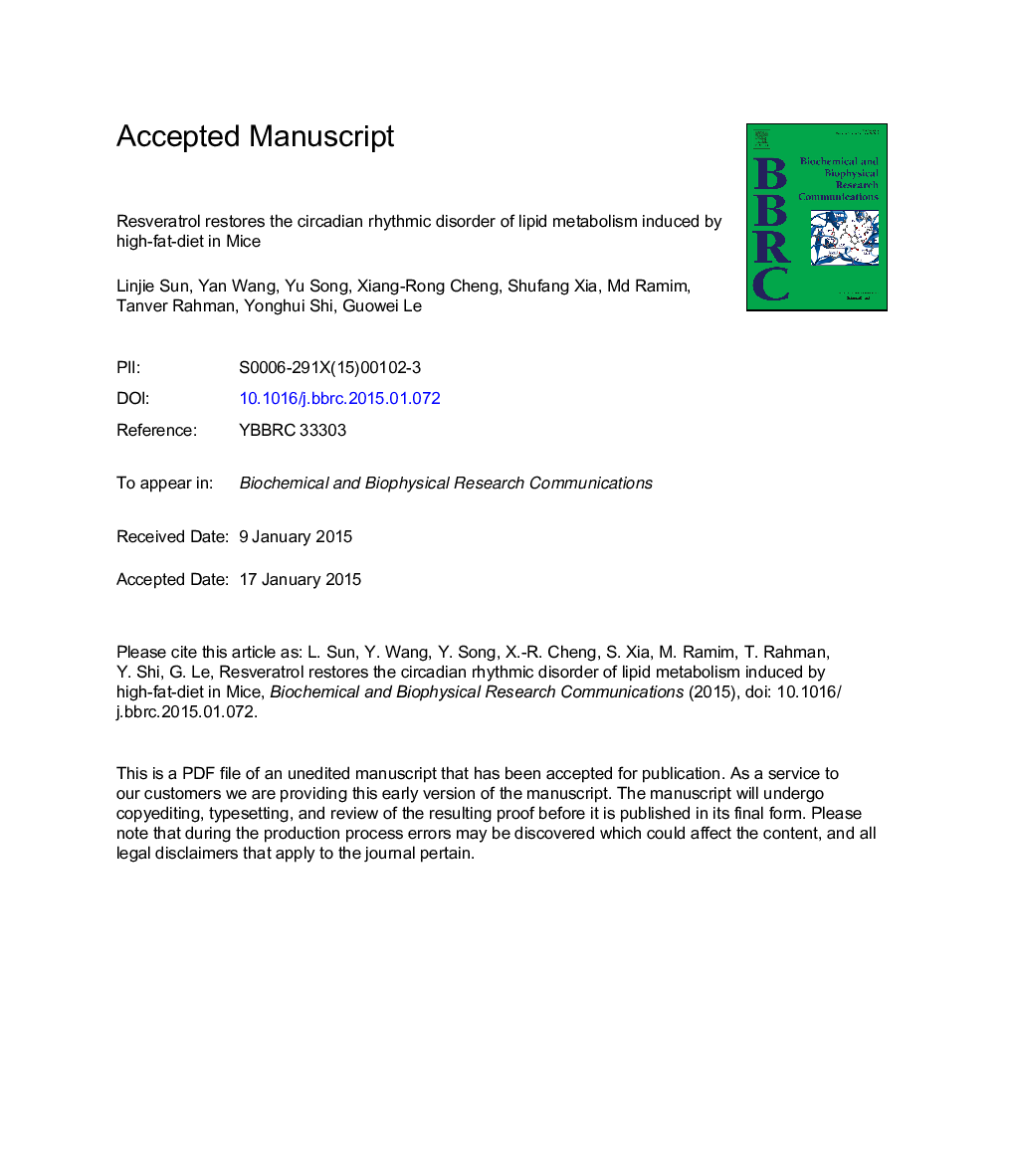| Article ID | Journal | Published Year | Pages | File Type |
|---|---|---|---|---|
| 10752433 | Biochemical and Biophysical Research Communications | 2015 | 23 Pages |
Abstract
Circadian rhythmic disorders induced by high-fat diet are associated with metabolic diseases. Resveratrol could improve metabolic disorder, but few reports focused on its effects on circadian rhythm disorders in a variety of studies. The aim of the present study was to analyze the potential effects of resveratrol on high-fat diet-induced disorders about the rhythmic expression of clock genes and clock-controlled lipid metabolism. Male C57BL/6 mice were divided into three groups: a standard diet control group (CON), a high-fat diet (HFD) group and HFD supplemented with 0.1% (w/w) resveratrol (RES). The body weight, fasting blood glucose and insulin, plasma lipids and leptin, whole body metabolic status and the expression of clock genes and clock-controlled lipogenic genes were analyzed at four different time points throughout a 24-h cycle (8:00, 14:00, 20:00, 2:00). Resveratrol, being associated with rhythmic restoration of fasting blood glucose and plasma insulin, significantly decreased the body weight in HFD mice after 11 weeks of feeding, as well as ameliorated the rhythmities of plasma leptin, lipid profiles and whole body metabolic status (respiratory exchange ratio, locomotor activity, and heat production). Meanwhile, resveratrol modified the rhythmic expression of clock genes (Clock, Bmal1 and Per2) and clock-controlled lipid metabolism related genes (Sirt1, Pparα, Srebp-1c, Acc1 and Fas). The response pattern of mRNA expression for Acc1 was similar to the plasma triglyceride. All these results indicated that resveratrol reduced lipogenesis and ultimately normalized rhythmic expression of plasma lipids, possibly via its action on clock machinery.
Related Topics
Life Sciences
Biochemistry, Genetics and Molecular Biology
Biochemistry
Authors
Linjie Sun, Yan Wang, Yu Song, Xiang-Rong Cheng, Shufang Xia, Md Ramim Tanver Rahman, Yonghui Shi, Guowei Le,
